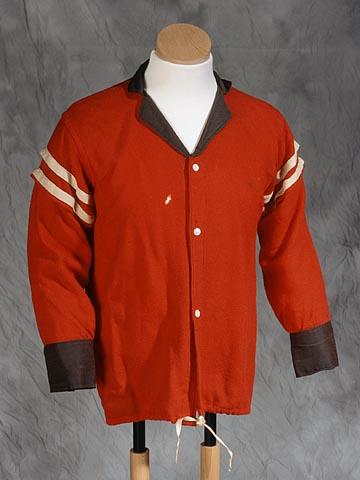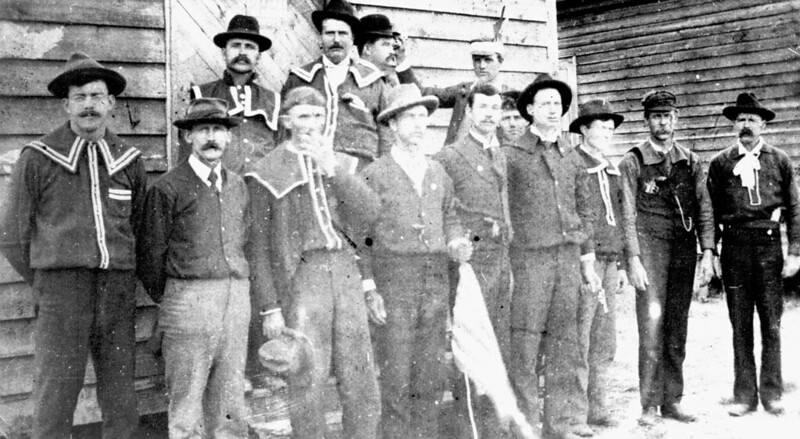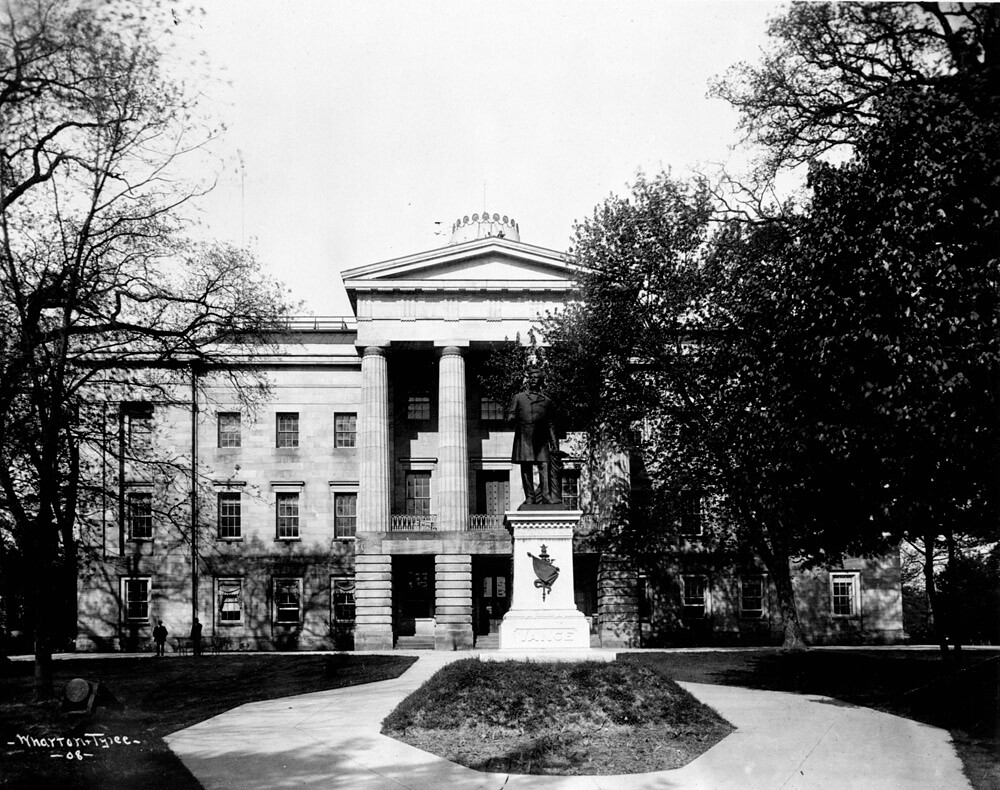Unable to secure political power within the framework of the American democratic system, white North Carolina Democrats resorted to intimidation, terrorism, and legal chicanery to wrench control of state government from the fusionists—a biracial coalition of Populists and Republicans.1 A barbaric white terrorist organization known as the Red Shirts embarked on a campaign of unbridled violence to prevent fusionist voters, especially Black men, from participating in the 1898 election cycle.2 Anti-fusion bloodlust peaked in Wilmington on November 10 when white supremacists murdered dozens of Black citizens and took control of city government at gunpoint.3
White supremacist forces successfully gained control of the state legislature in 1899 and immediately set about disenfranchising Black men via an amendment to the state constitution—one that would enact new requirements for voting, namely passage of a literacy test and payment of a poll tax.4 Prominent Democrats throughout the state rallied around the proposal and worked to solidify public support in favor of it. In May 1900, Thomas W. Bickett joined dozens of prominent North Carolina attorneys in publishing a statement in support of the amendment plan.5 That summer, he became more directly involved with the pro-amendment campaign by joining J. Bryan Grimes on a speaking tour of various “white supremacy clubs” and Democratic Party gatherings in the state.
Members of the terrorist organization the Red Shirts wore red tunics to signify their affiliation with the group. Courtesy North Carolina Museum of History.
Members of an armed terrorist organization known as the Red Shirts pose outside of a polling station, circa 1898. Courtesy State Archives of North Carolina.
Reflecting the state’s larger views on race at the time, white public opinion of Bickett’s efforts was overwhelmingly positive. At one such address, the future governor “got the best of the argument,” Raleigh’s Morning Post reported, “and the WHITE men of the crowd were delighted with the day’s work for the cause of white supremacy.”6 A “White Supremacy Club” in Franklinton welcomed Bickett as its first speaker and was similarly pleased with his skillful presentation on “political issues of the day”—a thinly veiled reference to the suffrage amendment.7 At Black Jack, a small community in Pitt County, Bickett “preached to them pure Democracy and White Supremacy” for two hours, turning the crowd—which reportedly included “mounted Red Shirts”—decidedly in favor of “White Supremacy” and the suffrage amendment.8
These efforts paid off for white Democrats. Put before the voters on August 2, 1900, the amendment passed with ease.9 Black North Carolinians wouldn’t have their suffrage rights restored until the enactment of the Voting Rights Act of 1965.10
After quietly practicing law in Louisburg for several years, Bickett determined to run for public office and, in May 1906, announced his intention to run for Franklin County’s seat in the North Carolina House of Representatives. His lengthy, published appeal to the voters placed special emphasis on his desire to increase funding for both public education and for the care of those who struggled with mental illness, issues that would become part of his campaign platform for governor a decade later.11 Franklin Countians must have liked what they had read—Bickett easily won the seat and travelled to Raleigh in January 1907 to join the General Assembly.
During his single term in the legislature, Bickett served as chair of the Committee on Insane Asylums and as a member of the committees for the judiciary, insurance, education, appropriations, and salaries and fees. Outside of his committee work, Bickett championed a failing effort to pass a bill that required lobbyists to register with the Secretary of State.12 A host of other bills introduced by Bickett and relating strictly to Franklin County—ranging from prohibition measures to school bonds to river cleanliness—faired far better and secured relatively easy passage by the assembly.13
Perhaps his greatest legislative achievement, however, was the creation of and successful campaign for the passage of a half-million-dollar appropriation in support of public health, the largest amount ever authorized for said purpose up to that point.14 Known informally as “the Bickett bill,” the act established a state hospital commission and entrusted the group with identifying, funding, and overseeing desperately-needed improvements to the state’s hospitals.15
Over the course of his political career, Thomas W. Bickett held the following offices:
- Attorney for Franklin County
- Member of the General Assembly (1907–1908)
- Attorney General (1909–1917)
- Governor (1917–1921)
This is how the Capitol appeared to Bickett when he arrived to take his seat in the state house of representatives in 1907. Courtesy State Archives of North Carolina.
Bickett’s monumental efforts to secure passage of the “Bickett bill” had certainly caught the interest of the press, but it wasn’t until the Democratic convention of 1908 that Bickett grabbed the attention of the electorate. His speech nominating Confederate veteran Ashley Horne for Democratic gubernatorial candidate was characterized as “the hit of the convention.”16 With only one term of service in the state legislature under his belt, the charismatic lawyer was considered a relative political nobody, a “new man” on the convention floor.17 Nevertheless, his rousing speech for Horne had “caught the ear of the convention and the ear of the state,” resulting in his stunning—shocking, even—emergence as the Democratic candidate for attorney general.18 Almost overnight, Bickett’s was a household name.
By early 1913, Democrats were considering Bickett’s potential to serve as the next governor of the state, an office that wasn’t to be filled by election for four more years. His popularity among the people couldn’t be ignored. When Bickett was called to take the oath of office as attorney general for Gov. Locke Craig’s administration on January 15, 1913, an “outburst of applause…broke with great energy” from the crowd of five thousand.19 A man in the gallery showed his enthusiasm more conspicuously, standing to shout, “There’s the next governor of the state.”20
1. James L. Hunt, “Fusion of Republicans and Populists,” NCpedia, https://www.ncpedia.org/fusion-republicans-and-populists, accessed July 13, 2023.
2. James L. Hunt, “Red Shirts,” NCpedia, https://www.ncpedia.org/red-shirts, accessed July 18, 2023.
3. Timothy B. Tyson, “The Ghosts of 1898: Wilmington’s Race Riot and the Rise of White Supremacy,” News and Observer (Raleigh), 17 November 2006.
4. James L. Hunt, “Disfranchisement,” NCpedia, https://www.ncpedia.org/disfranchisement, accessed August 8, 2023.
5. “The Franchise Amendment,” The Wilmington Messenger, 27 May 1900.
6. “The Other Fellow Skinned,” The Morning Post (Raleigh), 29 May 1900; “Tar Drops,” The Franklin Times (Louisburg), 1 June 1900.
7. The Franklin Times (Louisburg), 24 June 1900. Bickett addressed White Supremacy Clubs and Democratic Party gatherings on the subject of the amendment in Henderson, Louisburg, Centreville, Clifton’s Mill, Wize, Warrenton, Stokes, Grifton, and Oxford.
8. “Bryan Grimes’ Home: 2,500 People Greet Him and Mr. T. W. Bickett,” The News and Observer (Raleigh), 22 July 1900; “Black Jackers,” King’s Weekly (Greenville), 24 July 1900.
9. James L. Hunt, “Disfranchisement,” NCpedia, https://www.ncpedia.org/disfranchisement, accessed August 8, 2023.
10. “Voting Rights Act (1965),” Milestone Documents, National Archives, https://www.archives.gov/milestone-documents/voting-rights-act, accessed October 3, 2023.
11. “T. W. Bickett a Candidate for the House,” The Franklin Times, 25 May 1906.
12. “The General Assembly,” The Franklin Times, 18 January 1907.
13. “Mr. Bickett in the Legislature,” The Franklin Times, 22 March 1907.
14. “T. W. Bickett: Member of the House of Representatives from Franklin County,” The Franklin Times, 29 March 1907.
15. “New Commissions Named,” Greensboro Patriot, 20 March 1907.
16. “Without a Parallel in Democracy’s Past,” News and Observer (Raleigh), 28 June 1908.
17. News and Observer (Raleigh), 25 June 1908.
18. “Hon. T. W. Bickett,” North Carolinian (Raleigh), 02 July 1908.
19. “A Prophecy: Attorney General Bickett for the Next Governor,” Durham Herald, 16 January 1913; “New Governor Dedicates All to Native State,” News and Observer (Raleigh), 16 January 1913.
20. “A Prophecy: Attorney General Bickett for the Next Governor,” Durham Herald, 16 January 1913.



